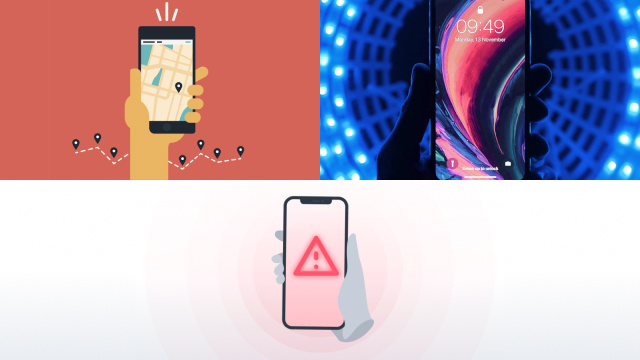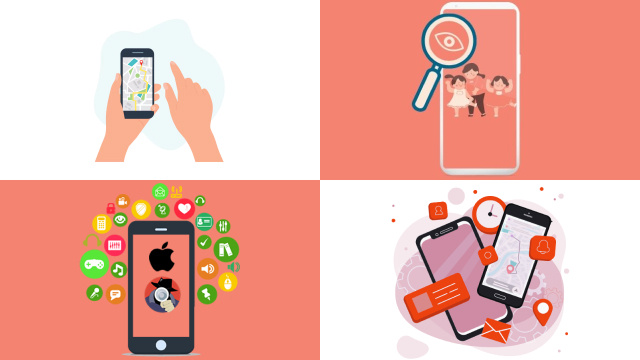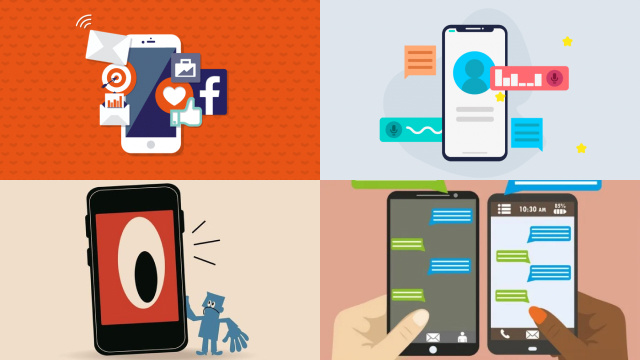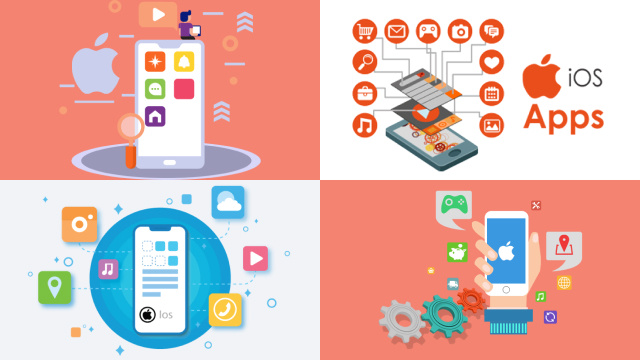Understanding iPhone Spy Methods Without Physical Access
In today’s digital age, the need to understand iPhone spy methods without physical access has become increasingly relevant. Whether it’s for monitoring a child’s online activities or safeguarding a company’s confidential information, there are legitimate reasons for exploring this realm.
However, it is important to note that engaging in any form of spying without proper authorization is illegal and unethical.
Various remote spy methods have emerged that claim to provide access to an iPhone without physical contact. These methods often exploit vulnerabilities in the device’s operating system or rely on social engineering techniques.
From sophisticated software solutions to exploiting cloud backups, the techniques vary in complexity and effectiveness.
Understanding these methods is crucial to stay informed about potential security risks and to protect personal privacy. By staying up-to-date with the latest trends in iPhone spy methods, individuals can take proactive steps to safeguard their devices and data.
It is essential to rely on legal and ethical means for monitoring iPhone activities, respecting privacy rights while ensuring security in the digital realm.
Legal Considerations: Spying on an iPhone Remotely
When it comes to remote surveillance on an iPhone, understanding the legal considerations is of utmost importance. While the desire to monitor an iPhone remotely may arise for legitimate reasons such as parental control or employee monitoring, it is essential to abide by the laws and respect privacy rights.
Laws regarding remote iPhone surveillance vary from country to country, and in some cases, even from state to state. It is crucial to familiarize oneself with the specific legal framework governing surveillance activities in the relevant jurisdiction. Engaging in unauthorized surveillance can lead to severe consequences, including legal ramifications and violations of privacy.
To ensure compliance, it is advisable to consult with legal experts or professionals well-versed in privacy and surveillance laws. They can provide guidance on the permissible methods and the boundaries that need to be respected while conducting remote surveillance on an iPhone.
By staying within legal boundaries, individuals can effectively address their monitoring needs while safeguarding privacy and maintaining a responsible approach to remote iPhone surveillance.
Exploring Remote Spy Apps for iPhone Monitoring
As technology advances, remote spy apps have emerged as powerful tools for iPhone monitoring. These applications claim to offer comprehensive insights into the activities taking place on an iPhone, even without physical access to the device. However, it is crucial to approach these apps with caution, considering legal and ethical implications.
Remote spy apps often boast features like call monitoring, text message tracking, GPS location tracking, and access to multimedia files. They operate by leveraging iCloud backup data or exploiting vulnerabilities in the iOS system.
Before utilizing such apps, it is essential to ensure their legitimacy, as using unauthorized or malicious software can lead to legal troubles or compromise personal data.
Furthermore, it is vital to respect privacy rights and obtain proper consent when monitoring someone else’s iPhone. Applicable laws and regulations should be thoroughly understood and followed to prevent any potential legal consequences.
When exploring remote spy apps for iPhone monitoring, responsible usage and adherence to legal and ethical guidelines are crucial to maintain privacy, trust, and lawful practices.
Setting up Spy Software on an iPhone without Physical Contact
The idea of setting up spy software on an iPhone without physical contact may seem intriguing, but it is essential to approach this topic with caution and adhere to legal and ethical boundaries.
While certain methods claim to offer remote installation of surveillance software, it is crucial to note that unauthorized access to someone’s device is illegal and a breach of privacy.
Legitimate spy software typically requires physical access to the target iPhone for installation. Once installed, it can provide access to various activities and data on the device remotely. However, any software claiming to achieve this without physical contact may be dubious or malicious.
Engaging in unauthorized activities not only violates the law but also undermines trust and personal privacy. It is vital to prioritize ethical practices and respect privacy rights when it comes to surveillance on an iPhone or any other device.
Sneak Peek: Monitoring iPhone Activities Remotely
The ability to remotely monitor iPhone activities offers a glimpse into the digital lives of individuals, be it for parental control or employee supervision. While this may seem appealing, it is crucial to navigate this realm responsibly, respecting privacy and legal boundaries.
Remote monitoring solutions provide access to a wide range of iPhone activities, including call logs, text messages, social media interactions, browsing history, and more. These tools often operate through secure connections and utilize encryption protocols to protect data transmission.
However, it is important to note that engaging in unauthorized monitoring or accessing someone’s iPhone without their consent is illegal and unethical. Respecting privacy rights and obtaining proper authorization is paramount when remotely monitoring iPhone activities.
By approaching remote monitoring with integrity, individuals can strike a balance between security and privacy, ensuring that these tools are used responsibly and ethically to enhance safety and accountability in the digital landscape.
Advanced Techniques: Spying on an iPhone from a Distance
The realm of remote spying on an iPhone has evolved with advanced techniques that claim to enable surveillance from a distance. While the idea of monitoring an iPhone remotely may be enticing, it is vital to understand the legal and ethical implications associated with such practices.
Advanced techniques for remote spying often involve exploiting vulnerabilities in the device’s operating system or utilizing sophisticated software solutions. These methods can potentially provide access to various iPhone activities, including text messages, call logs, emails, and browsing history.
However, it is important to emphasize that engaging in unauthorized spying is illegal and infringes upon personal privacy. Respecting privacy rights and adhering to applicable laws and regulations is crucial when considering remote spying techniques.
It is essential to approach these techniques with caution, prioritize ethical considerations, and seek legal guidance to ensure compliance and maintain the balance between security and privacy in the digital age.
Ensuring Anonymity: Concealing Your Tracks while Spying on an iPhone
When engaging in iPhone monitoring, it is crucial to prioritize privacy and ensure anonymity to protect both the observer and the observed. Concealing your tracks while spying on an iPhone involves implementing strategies that safeguard your identity and activities.
One effective method is to utilize anonymization techniques, such as using anonymous communication channels and employing encryption protocols. These measures help in obscuring your online presence and securing data transmission.
Additionally, adopting secure communication practices, like using end-to-end encrypted messaging platforms, adds an extra layer of protection to your monitoring activities. Regularly updating software and employing strong, unique passwords for all related accounts also contribute to maintaining anonymity.
However, it is essential to highlight that ensuring anonymity should not be synonymous with engaging in illegal or unethical behavior. Respecting legal boundaries, obtaining proper authorization, and considering ethical implications remain paramount in any monitoring endeavor.
By implementing these measures, individuals can strike a balance between monitoring iPhone activities and protecting privacy, ensuring responsible and conscientious surveillance practices.
Ethical Implications: When Should Spying on an iPhone be Justified?
The ethical implications surrounding the act of spying on an iPhone warrant careful examination and reflection. While there may be situations where such actions could be justified, it is essential to establish clear guidelines for determining their ethical validity.
One key consideration is the presence of valid and compelling reasons, such as ensuring the safety and well-being of a child or preventing potential harm to oneself or others. In such cases, monitoring activities may be justified as a means of protection and intervention.
However, it is crucial to navigate the boundaries of privacy with respect and restraint. Transparency and open communication should be prioritized whenever possible, as they form the foundation of trust and mutual respect.
Furthermore, legality plays a crucial role. Spying on an iPhone without proper authorization is illegal and should never be justified.
Ultimately, ethical justification relies on weighing the potential benefits against the potential harms, considering the specific circumstances and context. Reflecting on the principles of consent, privacy, and the greater good helps individuals make informed and ethical decisions regarding iPhone surveillance.



